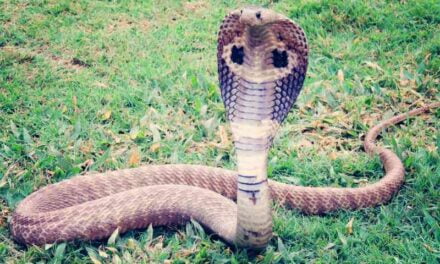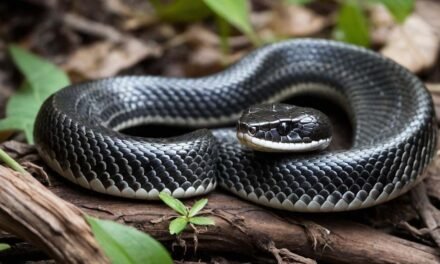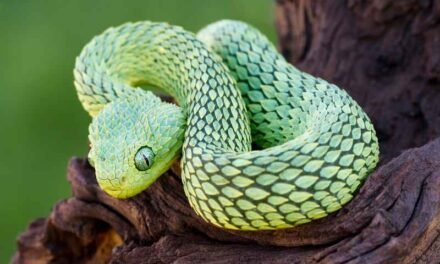Egyptian Cobras, scientifically known as Naja haje, are among the world’s most venomous snakes. Encounters with these snakes can be dangerous, and a bite can have severe consequences if not treated promptly and properly. In this blog, we will explore snakebite prevention strategies and provide essential information on first aid for Egyptian Cobra bites to ensure you are prepared in case of such an unfortunate encounter.
Snakebite Prevention:
Preventing a snakebite is the best way to avoid the potentially life-threatening consequences of envenomation. Here are some essential tips to reduce the risk of snakebites:
- Stay Informed: Learn about the snakes that inhabit your region, including the Egyptian Cobra. Knowing their habits, preferred habitats, and typical behavior can help you avoid encounters.
- Wear Appropriate Clothing: When hiking, camping, or working in snake-prone areas, wear long pants, closed-toed shoes or boots, and thick socks. This clothing can act as a barrier between your skin and a potential bite.
- Be Mindful of Your Surroundings: Be cautious when stepping over rocks, logs, or debris, as snakes often hide in such areas. Watch where you place your hands and feet, especially in tall grass or undergrowth.
- Use a Light at Night: If you are active at night, use a flashlight to illuminate your path. Many snakes, including Egyptian Cobras, are nocturnal and may be more active after dark.
- Keep a Safe Distance: If you encounter a snake, maintain a safe distance and do not attempt to handle or provoke it. Many snakebites occur when people attempt to catch or kill the snake.
- Avoid Disturbing Nests: Snakes may become aggressive when protecting their nests or young. Be cautious around such areas and give them a wide berth.
- Stay Calm: In the event of an encounter with a snake, try to remain calm and slowly back away. Sudden movements or loud noises may startle the snake.
- Educate Others: Educate your family, friends, and colleagues about snake safety and what to do in case of a snakebite. Awareness can save lives.
First Aid for Egyptian Cobra Bites:
Despite taking precautions, snakebites can still occur. If you or someone you are with is bitten by an Egyptian Cobra, it is crucial to act swiftly and follow proper first aid protocols. Here’s what to do:
- Stay Calm: Panic can exacerbate the situation by increasing heart rate and spreading venom more quickly through the bloodstream. Encourage the victim to stay as calm and still as possible.
- Immobilize the Affected Limb: If the bite is on an extremity (arm or leg), immobilize it with a splint or bandage to minimize movement. This helps slow the spread of venom.
- Keep the Bite Area at or Below Heart Level: Elevating the bitten limb can encourage the venom to spread more rapidly. Keeping it at or below heart level can slow the venom’s movement through the bloodstream.
- Remove Constrictive Clothing and Jewelry: Swelling can occur rapidly, so remove any tight clothing, jewelry, or accessories near the bite site.
- Do Not Cut or Suck the Wound: Contrary to popular belief, cutting the bite site or attempting to suck out the venom is not recommended. These actions can worsen the situation and increase the risk of infection.
- Apply a Clean, Dry Bandage: Use a sterile bandage or cloth to cover the bite area. It should be snug but not too tight. This can help reduce swelling and keep the wound clean.
- Seek Immediate Medical Attention: Regardless of the severity of the bite, it is essential to seek medical assistance as soon as possible. Hospitals can administer antivenom and provide additional treatment and monitoring.
- Stay Hydrated: Encourage the victim to drink water, as staying hydrated can help with recovery.
- Record Symptoms: If possible, record the time of the bite, any symptoms experienced, and the snake’s description (color, size, markings) to assist medical professionals in providing the appropriate treatment.
What NOT to Do:
In addition to knowing what steps to take, it’s equally important to understand what not to do in the event of a snakebite:
- Do not use a tourniquet: Tourniquets can restrict blood flow and worsen tissue damage.
- Do not use ice: Applying ice can exacerbate tissue damage.
- Do not attempt to suck out venom: This is ineffective and can introduce bacteria into the wound.
- Do not use electric shock devices: These have no proven benefit and can cause harm.
In conclusion, while snakebites from Egyptian Cobras are rare, it is essential to be prepared and informed about snakebite prevention and first aid. Staying calm, immobilizing the affected limb, and seeking immediate medical attention are the key steps to minimize the effects of a snakebite and increase the chances of a successful recovery. By taking preventive measures and knowing how to respond in the event of a bite, you can significantly reduce the risks associated with encounters with these venomous reptiles.





